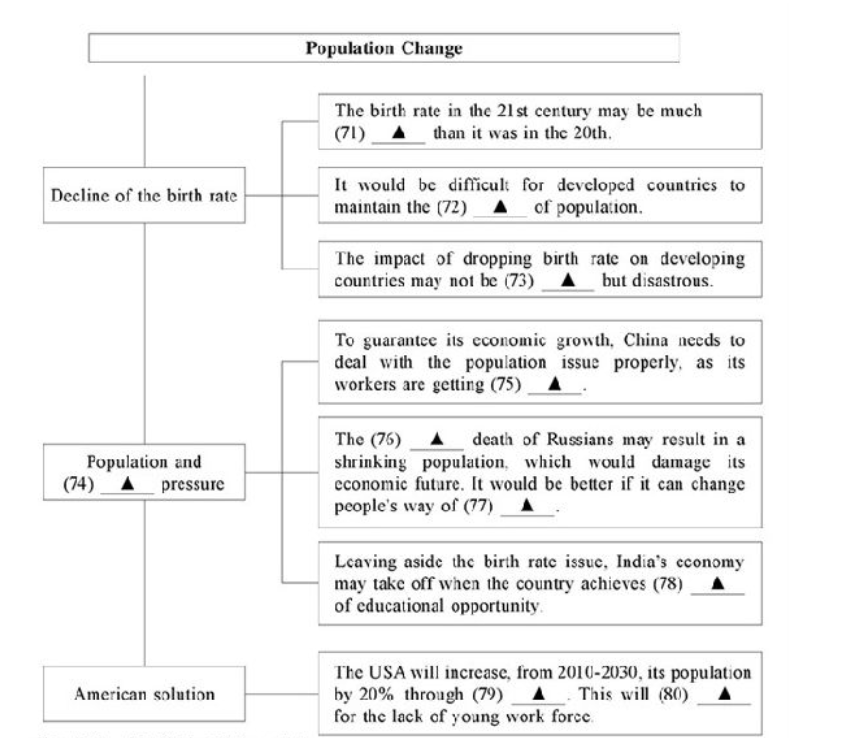Write NO MORE THAN THREE WORDS for each answer.
Not all print dictionaries are the same, as you will notice when you select one. To make a wise selection, you should know how to distinguish among three kinds of print dictionaries: pocket, desk, and unabridged. You should also know the copyright date of your dictionary, and check is special features.
A pocket dictionary is small. Generally, it contains no more than 75000 entries, making it hardly to carry to class and efficient to use. However, a pocket dictionary doesn't contain enough entries to be adequate for college reference homework. In addition, the information about each word in a pocket dictionary is generally limited. A desk dictionary is medium sized, generally containing over 100,000 entries as well as extra features. For college work, you should own a current desk dictionary. An unabridged dictionary is a complete dictionary. Abridged dictionaries, such as pocket and desk dictionaries, are shortened. Because unabridged dictionaries contain nearly all English words, they are large and heavy. They are often used by schools and libraries.
If the copyright date of your current dictionary shows that it was published five or more years ago, consider investing in a more recent edition. English is a dynamic language that admits new words and recognizes changes in meaning, spelling, and usage of familiar words. This is reflected in an up-to-date dictionary.
In selecting a dictionary, check the features it offers besides vocabulary definitions. Many editions contain signs, symbols and foreign words. Some also contain CD-ROMs and access to special online features.

粤ICP备20024846号
 粤公网安备 44130202000953号
粤公网安备 44130202000953号
 粤公网安备 44130202000953号
粤公网安备 44130202000953号
Copyright ©2020-2024 优题课 youtike.com 版权所有
Powered by:Youtike Platform 6.6.3
声明:本网站部分内容由互联网用户自发贡献自行上传,本网站不拥有所有权,也不承担相关法律责任。
如果您发现有涉嫌版权的内容,欢迎发送邮件至:service@youtike.com 或 联系QQ:267757 进行举报,一经查实,本站将立刻删除涉嫌侵权内容。
如果您发现有涉嫌版权的内容,欢迎发送邮件至:service@youtike.com 或 联系QQ:267757 进行举报,一经查实,本站将立刻删除涉嫌侵权内容。
